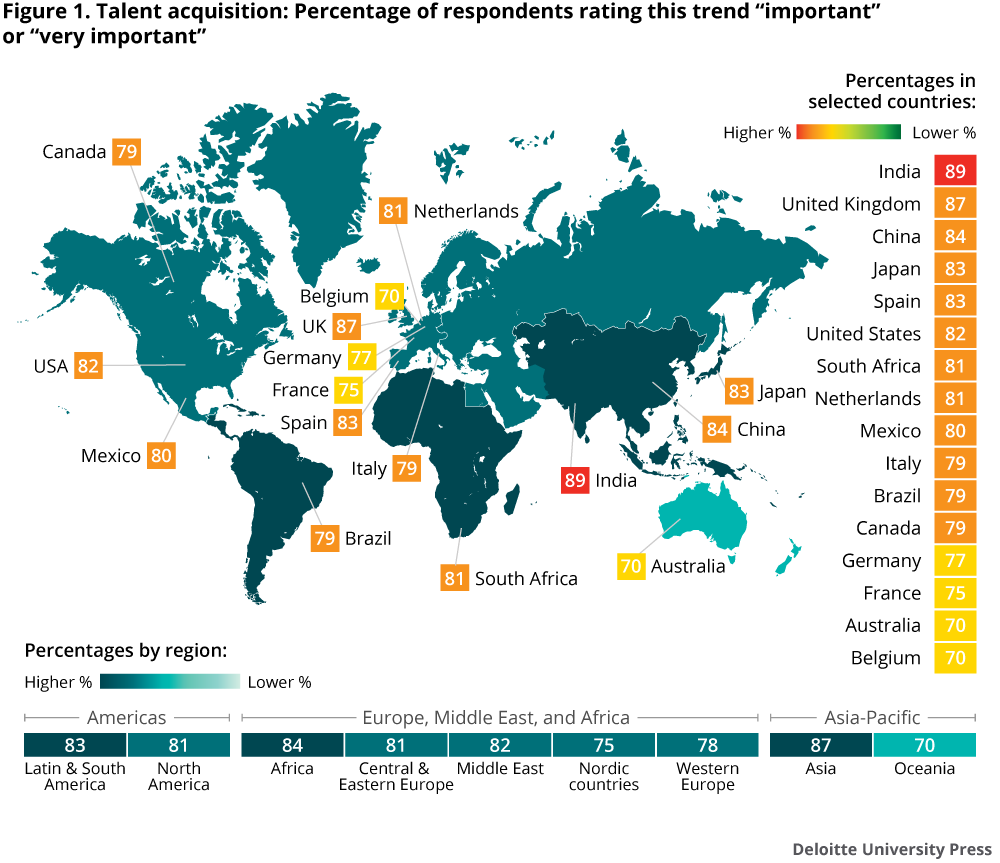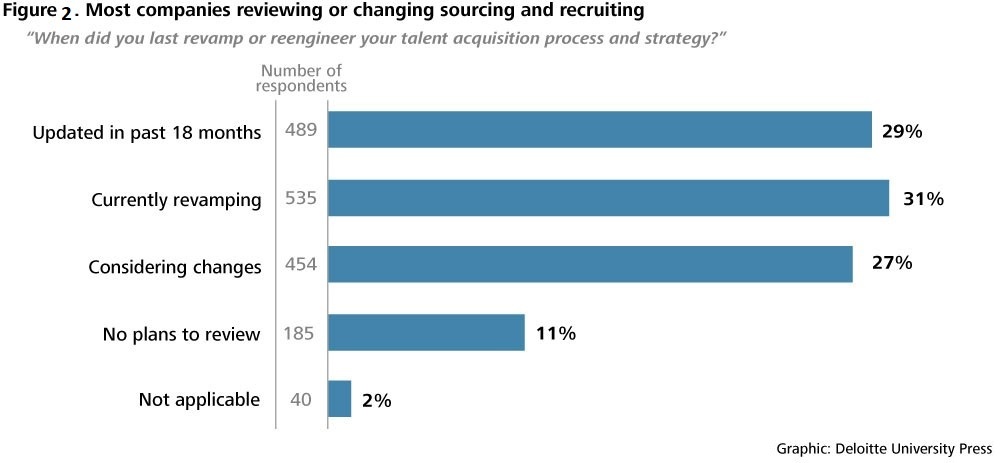The quest for talent goes far beyond traditional recruitment to include a wider range of talent pooling. Once the only field of HR, talent management now involves many teams in the whole organisation.
In addition to the complexity, the speed of technology development provides many new solutions, even if the nature and the source of talent market continue to change.The current platforms are struggling to adapt as many are too old to integrate emerging technologies, capacities, and needs.
Read more: Companies' views on talent management (Part 1)
Businesses apply talent management into practice
In a global survey interviewing HR professionals from major companies around the world, more than half of respondents rated talent management as important for the organisation.

It is the HR professionals' top priority to understand the need of effectively managing their existing pools of talent. The complexity of managing the existing ones does not hinder businesses from using it to improve organisational performance. The lowest figure in the chart above is 70 per cent, a clear demonstration for that.
In addition, for organisations that have already applied a talent management scheme, they are also aware of the need to regularly update the HR trends and new technologies to catch up with the movement of the economy. Below is a chart showing how HR professionals react to the reviewing or changing recruiting process.

HR staff show their awareness of the new and updated recruiting process, with 31 per cent saying they are “currently revamping” and 29 per cent confirming the update in past 18 months. A quarter of them are “considering changes” to their talent management strategies.
In Vietnam, smart talent management had also become popular since enterprises and organisations are gradually replacing traditional recruitment process. Furthermore, there are more and more businesses seeks suitable Talent Management solutions to further enhance their business plan.
Read more: Talent Management – What Organisations Can Learn from Top Sport Teams
Some requirements of Talent Management to notice
- Strategic planning: Talent acquisition focuses on making a list of potential candidate, so its requires establishing a strategy for finding and managing candidate data sets.
- Human resource allocation: Having deep and complete insights about the roles, positions, responsibilities and experience needed for each aspect of the business can make it a lot easier in implementing talent acquisition strategies.
- Measuring and predicting: Data is an essential factor in the talent acquisition process. The recruiting staff must collect, manage and analyse as much data as possible to make the talent plan go smoothly.
- Building the recruiting brand: From defining the vision, mission and core values of the enterprise to expressing and promoting the image to the candidates through various ways such as recruitment website, fanpage, forums…
- Relationship building with candidates: Including improving the candidate experience, managing the candidates, and keeping in touch with candidates who are temporarily unavailable.
Read more: Understanding Company Culture and Its Importance in Talent Acquisition
 English
English  Vietnamese
Vietnamese 


